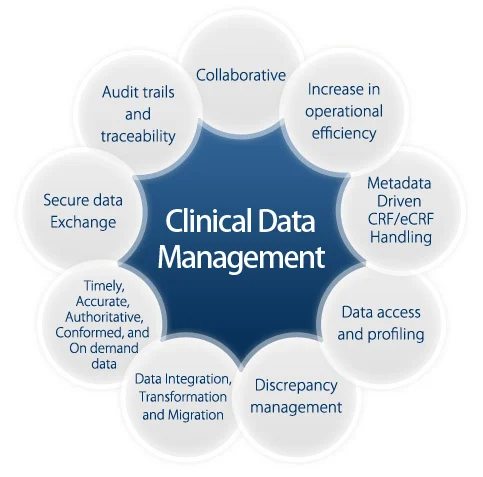In clinical trials, data cleaning and query management are crucial processes to ensure the accuracy and integrity of the data collected. Here's a detailed look at these two essential aspects:
1. Data Cleaning
Data cleaning involves reviewing, correcting, and ensuring the accuracy of the data collected during a clinical trial. This process is vital for maintaining the reliability of the trial results and meeting regulatory standards. Key aspects include:
1.1. Data Validation
- Consistency Checks: Ensure data is consistent across different sources and time points. For instance, checking that patient demographics match across various reports and databases.
- Range Checks: Verify that data falls within expected ranges (e.g., age, lab values) to identify and correct outliers or errors.
1.2. Error Identification
- Missing Data: Identify and address missing values by either imputing data, if appropriate, or investigating the cause and collecting missing data if feasible.
- Logical Errors: Correct discrepancies that arise from data entry errors or misinterpretations, such as dates that do not make sense (e.g., end dates before start dates).
1.3. Data Reconciliation
- Source Verification: Cross-check data from different sources, such as electronic health records (EHRs) and case report forms (CRFs), to ensure consistency.
- Protocol Adherence: Verify that the data aligns with the study protocol and that any deviations are appropriately documented and explained.
2. Query Management
Query management is the process of identifying, managing, and resolving data queries that arise during the trial. Queries are typically generated when data discrepancies or issues are detected during data cleaning and validation. Key aspects include:
2.1. Query Generation
- Automated Queries: Use data management systems to automatically generate queries when data inconsistencies or validation errors are detected.
- Manual Queries: Investigators or data managers may create queries based on their review of the data.
2.2. Query Resolution
- Investigate and Respond: Clinical sites or data entry personnel review and respond to queries by providing clarifications, corrections, or additional information.
- Timeliness: Ensure that queries are resolved promptly to maintain the integrity of the data and avoid delays in the trial.
2.3. Tracking and Documentation
- Query Tracking: Maintain a detailed record of all queries, including the date issued, the nature of the issue, responses, and resolutions.
- Audit Trails: Documenting the query process provides transparency and is crucial for regulatory audits and inspections.
2.4. Quality Control
- Regular Reviews: Periodically review the query management process to identify trends or recurring issues that might indicate underlying problems with data collection or entry.
- Training and Support: Provide ongoing training for clinical trial staff on data entry, query management procedures, and the importance of accurate data.
Best Practices for Data Cleaning and Query Management
1. Standardize Processes: Implement standardized procedures and guidelines for data cleaning and query management to ensure consistency and efficiency.
2. Use Advanced Tools: Leverage advanced data management systems and software to automate and streamline data cleaning and query management processes.
3. Ensure Compliance: Adhere to regulatory requirements and industry standards for data management to maintain data integrity and meet compliance standards.
4. Collaborate with Stakeholders: Foster effective communication and collaboration between data managers, clinical sites, and investigators to address data issues promptly and accurately.
5. Monitor Data Quality: Continuously monitor data quality throughout the trial to identify and address issues early, ensuring high-quality, reliable data.
In conclusion, meticulous data cleaning and efficient query management are foundational to the success of clinical trials. They ensure that the data used to make critical decisions about new treatments is accurate, reliable, and compliant with regulatory standards. By prioritizing these processes, clinical trials can produce trustworthy results that ultimately advance medical knowledge and patient care.
To learn more from related topics, please visit our website or newsletter at https://medipharmsolutions.com/newsletter/


No Comments